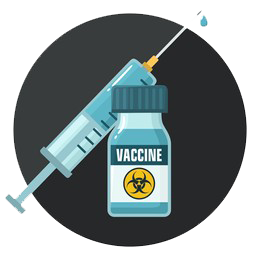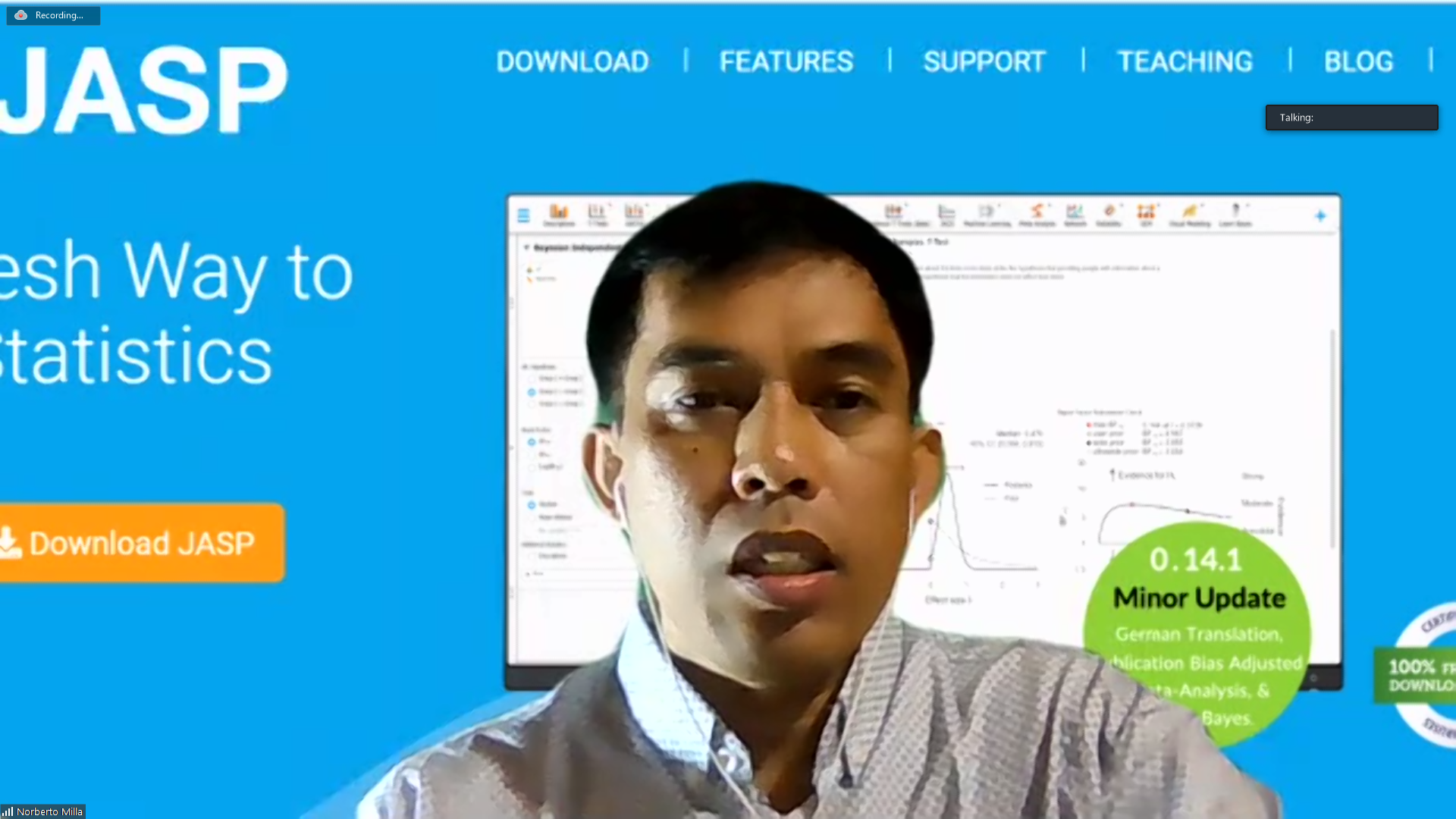Featured Videos
News
- Details
- Written by Dr. Ma. Elsa Gerona, DepEd RO 8
- Category: News
- Hits: 1356
Palo, Leyte – The Department of Education Regional Office VIII, led by its Regional Director Ma. Gemma Mercado Ledesma, started its vaccination roll out for its employees on August 2021. It can be noted that DepEd personnel has been included in the A4 category as approved by the President and the National IAFT.
To ensure that all DepEd employees in the region will get equal opportunity to get vaccinated, Regional Director Ledesma requested the Department of Health Regional Office VIII to immediately accommodate its employees through their respective Local Government Units despite being classified under A4 category. The said request was then approved by the Department of Interior and Local Government and DepEd employees are now being entertained by their respective LGUs on scheduled basis.
RD Ledesma further emphasized during the Regional Management Committee meeting that teachers will be discouraged to serve in the upcoming 2022 National Elections unless vaccinated.
As of August 16, 2021, out of 51,042 teaching and non-teaching personnel eligible population for vaccination all over the region, 11,473 (22%) had been vaccinated. Among these belong to A1-4 categories. A series of vaccination information dissemination and advocacies are being undertaken per division. DepEd hopes that as early of September this year, almost all of its school population will be vaccinated. This prepare the schools for the face to face resumption of classes once permitted.
- Details
- Written by Dr. Ma. Elsa Gerona, DepEd RO 8
- Category: News
- Hits: 1501
Eastern Visayas Health Research and Development Consortium (EVHRDC) thru the Capacity Building Committee conducted a 2-day Webinar on Statistical Analysis for Scientific Research last July 21-22, 2021. This was participated by 18 researchers coming from member institutions. The activity was graced during the Opening Program by the Dr. Exuperia B. Sabalberino, EVHRDC Chairperson and DOH EVCHD Regional Director, by a Welcome Message. Dr. Virgilio E. Sabalo, Capacity Building Committee Chairperson, delivered the rationale of the activity. Resource Speakers were invited namely: Dr. Norberto E. Milla, Head of the Department of Mathematics, Physics and Statistics of Visayas State College, Prof. Ferdinand Abocejo, Associate Professor V of Eastern Visayas State University, and Dr. Sherrie Ann C. Labid, from Samar State University who is also the Research Utilization Committee Chairperson. Dr. Milla gave an overview about the JASP software and demonstrated on how to use the software. He discussed in detail the concepts of data transformation and descriptive statistics, among others. Prof. Abocejo discussed about correlation analysis and the linear regression . On the other hand, Dr. Labid discussed about the Relative Risk and Odds Ratio on the 2nd day.
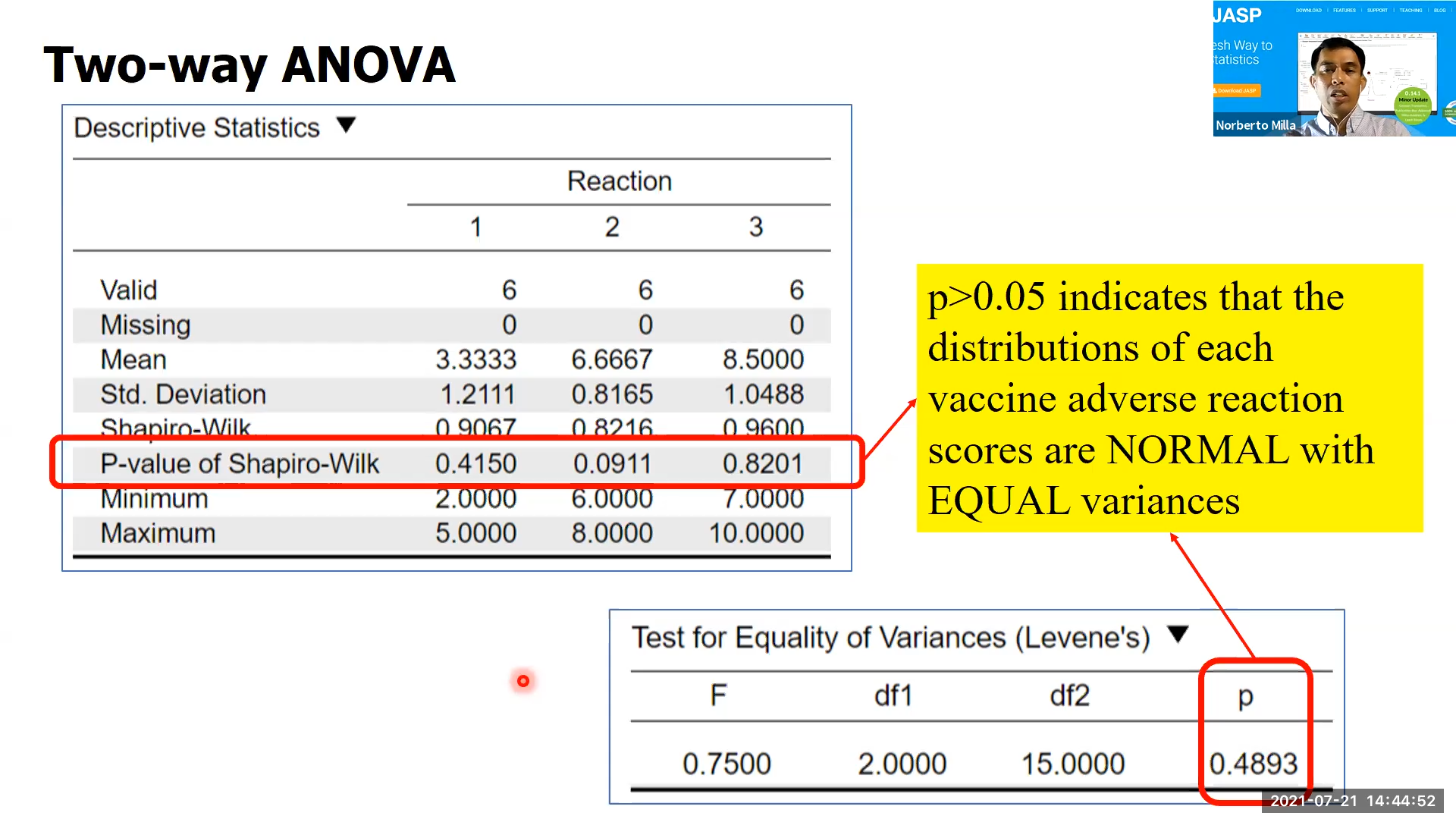
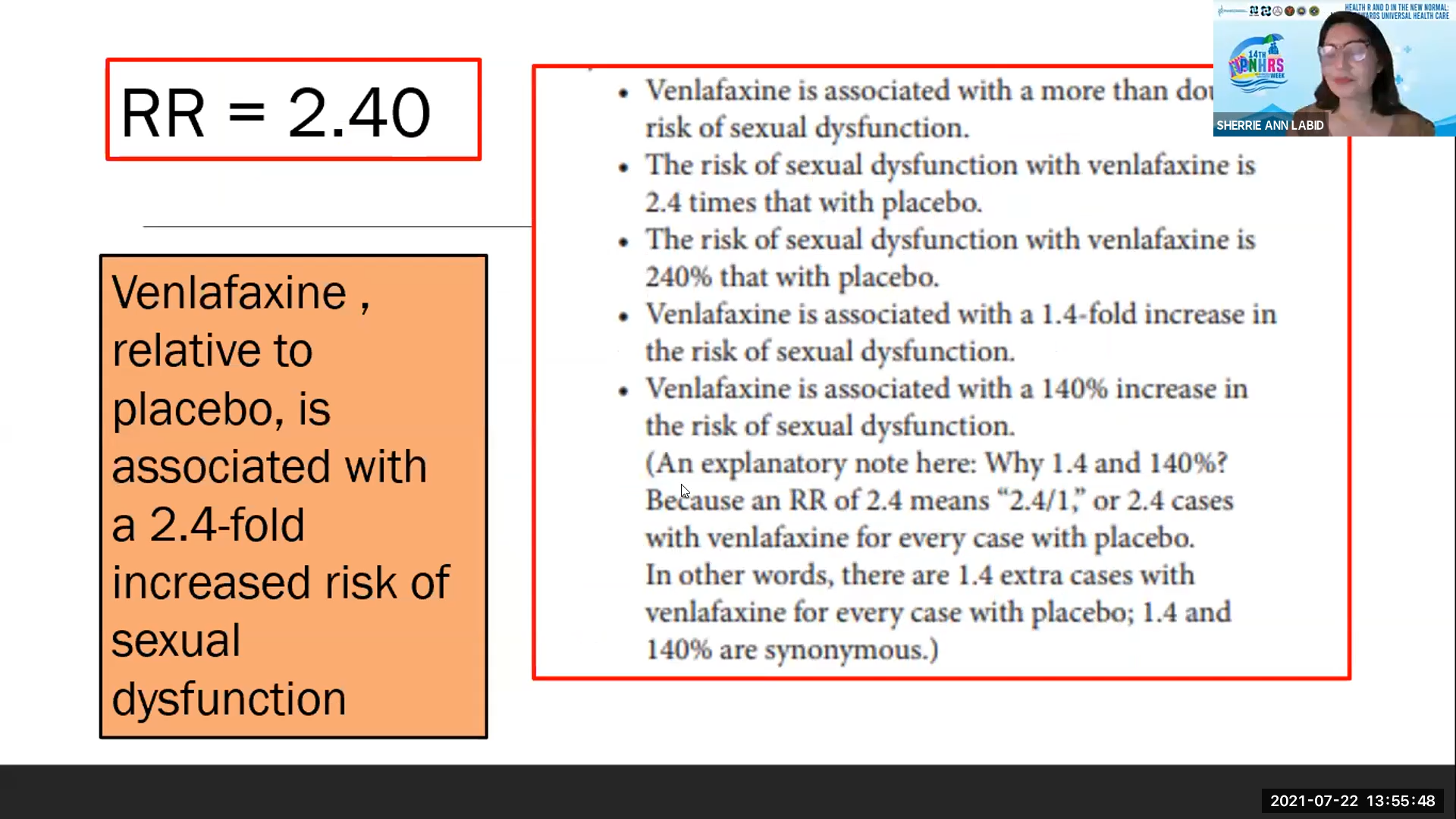
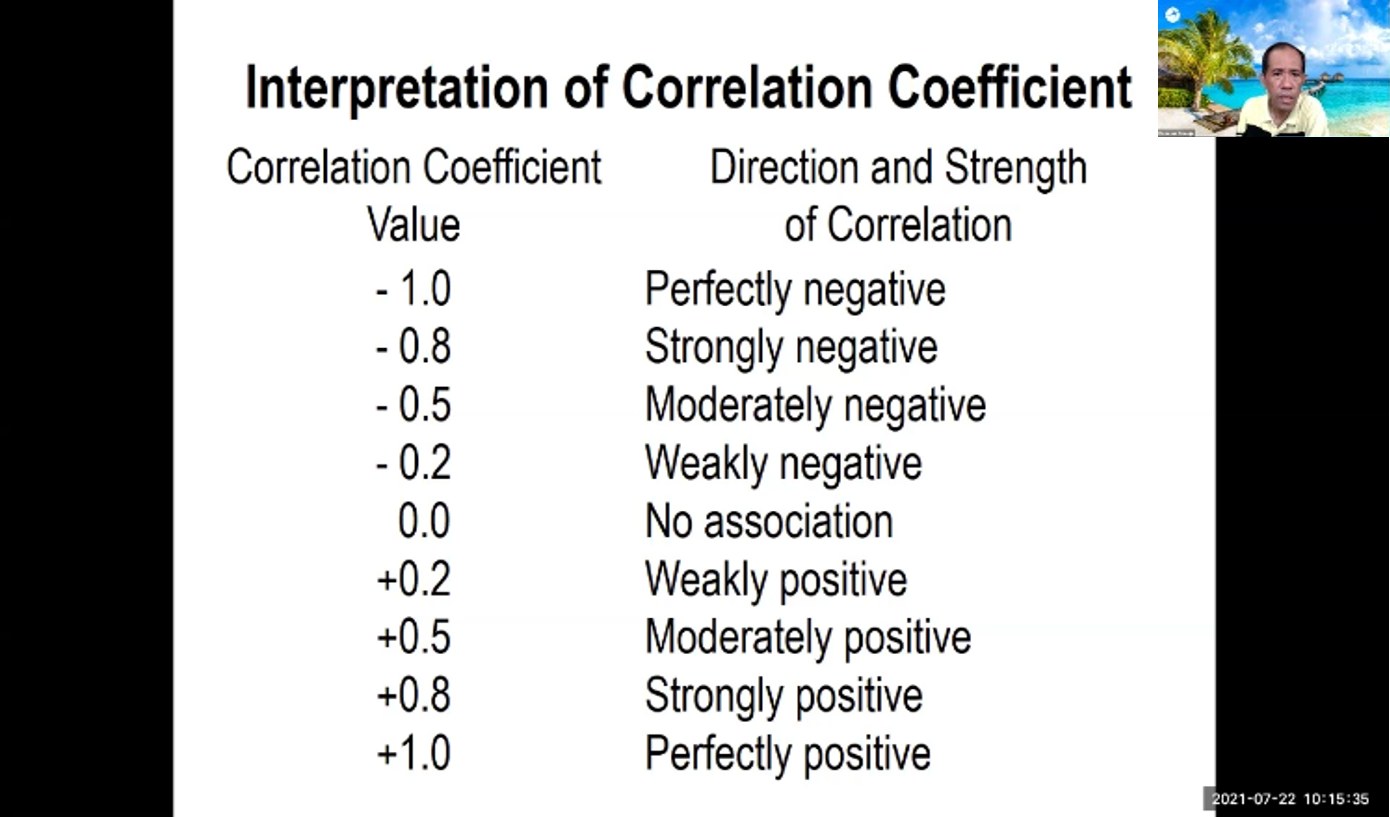
Ms. Anicia P. Catameo, the Office-In-Charge of the Institution Development Division of DOST-PCHRD and the former Regional Project Officer for EVHRDC delivered her insights on the said training, which was followed by an inspirational message for the participants.
To formally close the training, Dr. Lucia P. Dauz, EVHRDC Director, delivered her closing message.
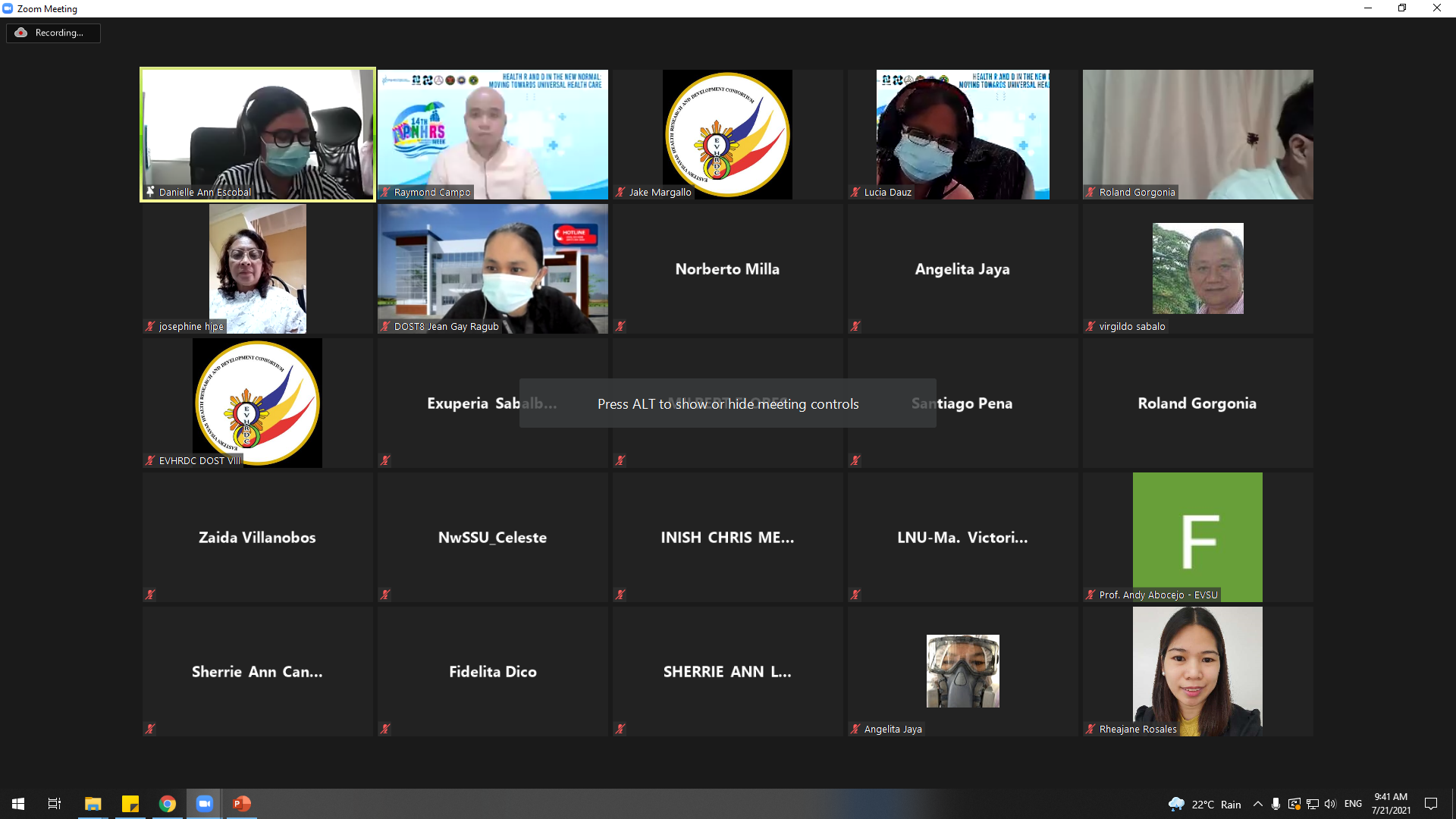
- Details
- Written by Jelyn Lopez, DOH RO8
- Category: News
- Hits: 1124
The Department of Health Eastern Visayas Center for Health Development (DOH EVCHD), thru its Regional Epidemiology and Surveillance Unit, received a report from the DOH Central Office’s Epidemiology Bureau that of the samples sent for sequencing to the Philippine Genome Center between June and July, ten (10) turned out to be positive for the highly transmissible Delta Variant or the B.1.6.1.7 lineage first identified in India.
Of the ten individuals who tested positive for the said variant of concern, nine (9) are from Eastern Samar– one (1) from Arteche, five (5) from Borongan, three (3) from Can-avid, and one (1) from Tacloban City. Although all have already recovered, the Surveillance and Epidemiology Unit of DOH EVCHD is conducting an investigation for forward and backward tracing. This is to determine the source or origin of transmission and determine the extent of transmission in the area. All are considered to be local cases because there were no recorded travel history outside the region amongst them. Active monitoring and surveillance is being conducted to gather more data about these cases in the areas mentioned.
According to researches conducted about the contagious Delta variant, it is 40-60% more transmissible than the Alpha variant and three times more transmissible than the original SARS-COV-2 virus where one case can infect eight people. It seems to be deadlier where even younger ages develop severe diseases and may appear worse when the healthcare system is overwhelmed. Also, it has a longer duration of infectiousness with a faster time to becoming infectious from time of exposure where even less than fifteen minutes of contact from an infected person, the virus can already transmit. It is highly contagious even when asymptomatic.
- Details
- Written by Knulp Aseo, NEDA 08
- Category: News
- Hits: 1059
The Eastern Visayas Health Research and Development Consortium (EVHRDC) conducted a Research Proposal Enhancement Workshop on 8-9 July 2021 via Zoom.
During the two-day workshop, researchers were partnered with a mentor who helped enhance their proposals. Other mentors assigned on the overall methods and statistical aspects of the proposals moved from one breakout room to another providing one-on-one coaching and mentoring.
Day 1 of the workshop focused on the review and refinement of the statement of the research question or problem, objectives of the study, significance of the study, and review of related literature; while day 2 focused on the conceptual framework, methodology, limitations of the study and LIB.
The enhanced proposals were presented by the researchers after the workshop. They were:
- Factors Affecting Low Hemoglobin Deferral Among Voluntary Blood Donors of a Government Tertiary Hospital Blood Bank;
- Establishment of a Monitoring System Using Service Delivery Network (SDN For Postpartum Mothers With Hypertensive Disorders;
- A Father’s Relational Presence in Young Adult Filipino Psychiatric Patients in a Tertiary Hospital in Eastern Visayas, Philippines; and
- Knowledge, Attitude and Practices of Palliative Care Among Primary Care Providers
The activity was initiated to provide researchers with a one-on-one mentoring and coaching session with Basic Research Methods trainers to guide them in developing full-blown proposals following the standard Philippine Council for Health Research and Development (PCHRD) format so they can later be funded by the Consortium.
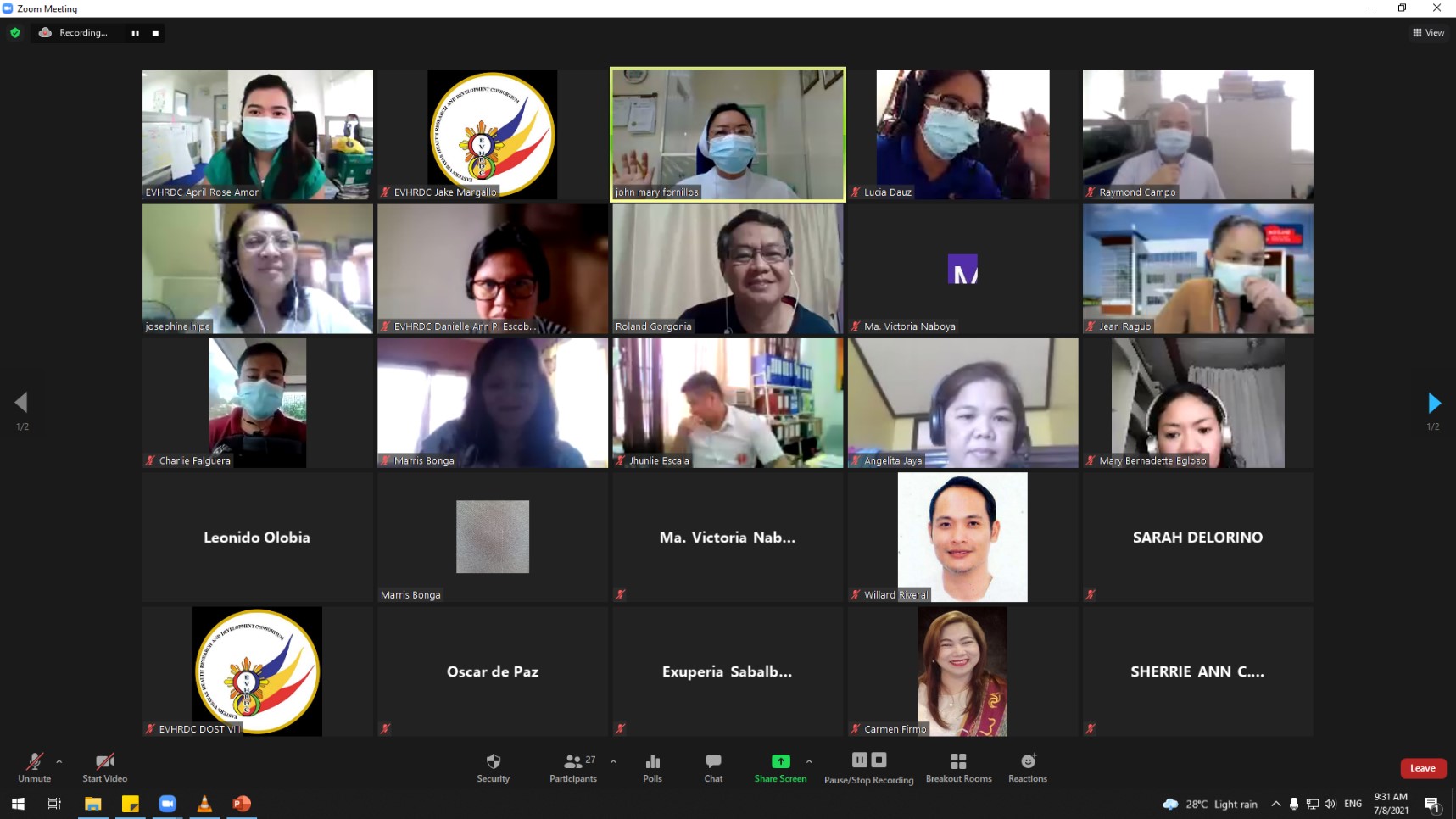 |
| Participants of the Research Proposal Enhancement Workshop during the opening ceremonies. |
- Details
- Written by Dr. Ma. Elsa Gerona, DepEd RO8
- Category: News
- Hits: 1131
To support the national vaccination drive of the government, the Department of Education (DepEd) launched Vacc2School: Ligtas na Bakuna, Para sa Balik-Eskwela! campaign for its teaching and non-teaching personnel.
Vacc2School campaign aims to inform, educate, and engage the Department’s stakeholders in promoting the vaccination drive and other related policies to mitigate COVID-19. The campaign was also contextualized to support the BIDA Solusyon Plus sa COVID-19 campaign of the Department of Health (DOH) in the education sector.
“I am encouraging everyone, especially the teachers, and other education personnel to participate in this campaign, and make informed decisions on vaccination to further intensify and advance our chances of safely returning to school,” Secretary Leonor Magtolis Briones, who recently received the vaccine herself, said.
“We would like to encourage our teachers to vaccinate themselves because it is not only a matter of protecting your personal rights, it is also a matter of protecting the lives and health of children which is also entrusted to our care,” she added.
Recently, the President and the IATF approved the request of Secretary Briones to include frontline personnel in basic education under Priority Group A4.
With the guidance of the NVDP, DepEd will participate in three levels: (1) as recipients or beneficiaries of the vaccine, (2) as members of the different task group on vaccination, and (3) as champions for advocacy of the immunization program.
Several advocacy campaigns are on ongoing in the different areas of deped to discuss salient matters on vaccination activities.
At present DepEd Task Force Memorandum 421 encourages region to do master listing of DepEd personnel for COVID-19 vaccination in their respective LGUs.

